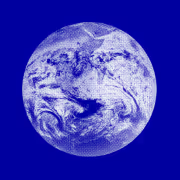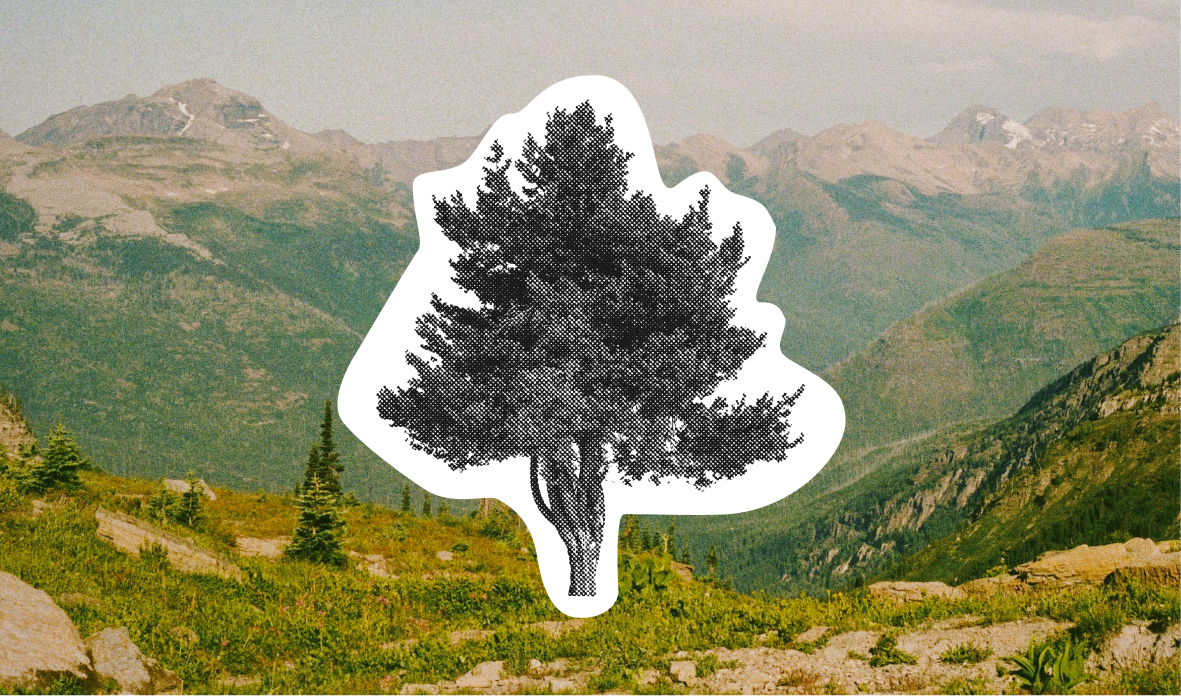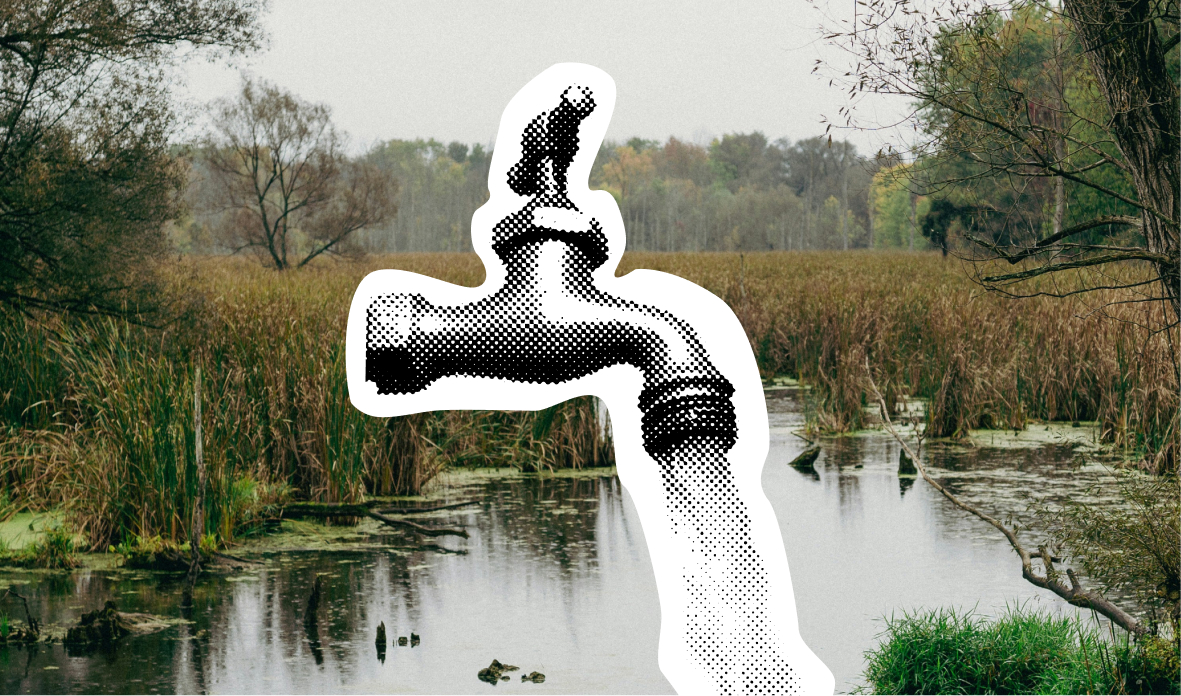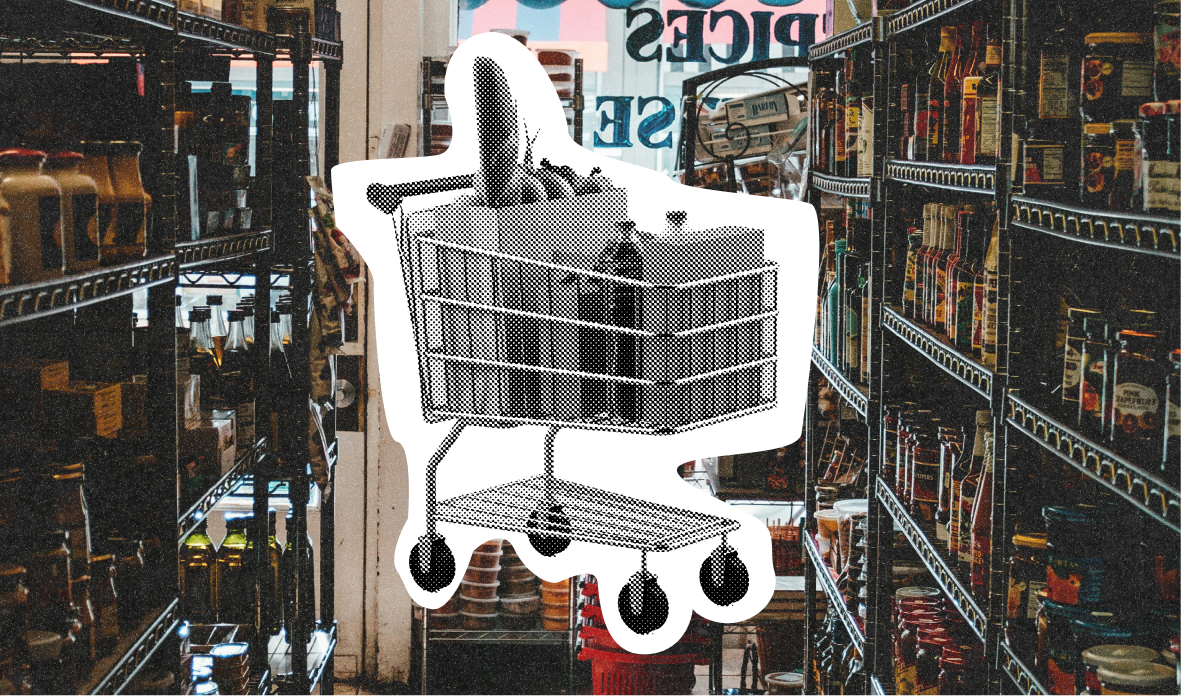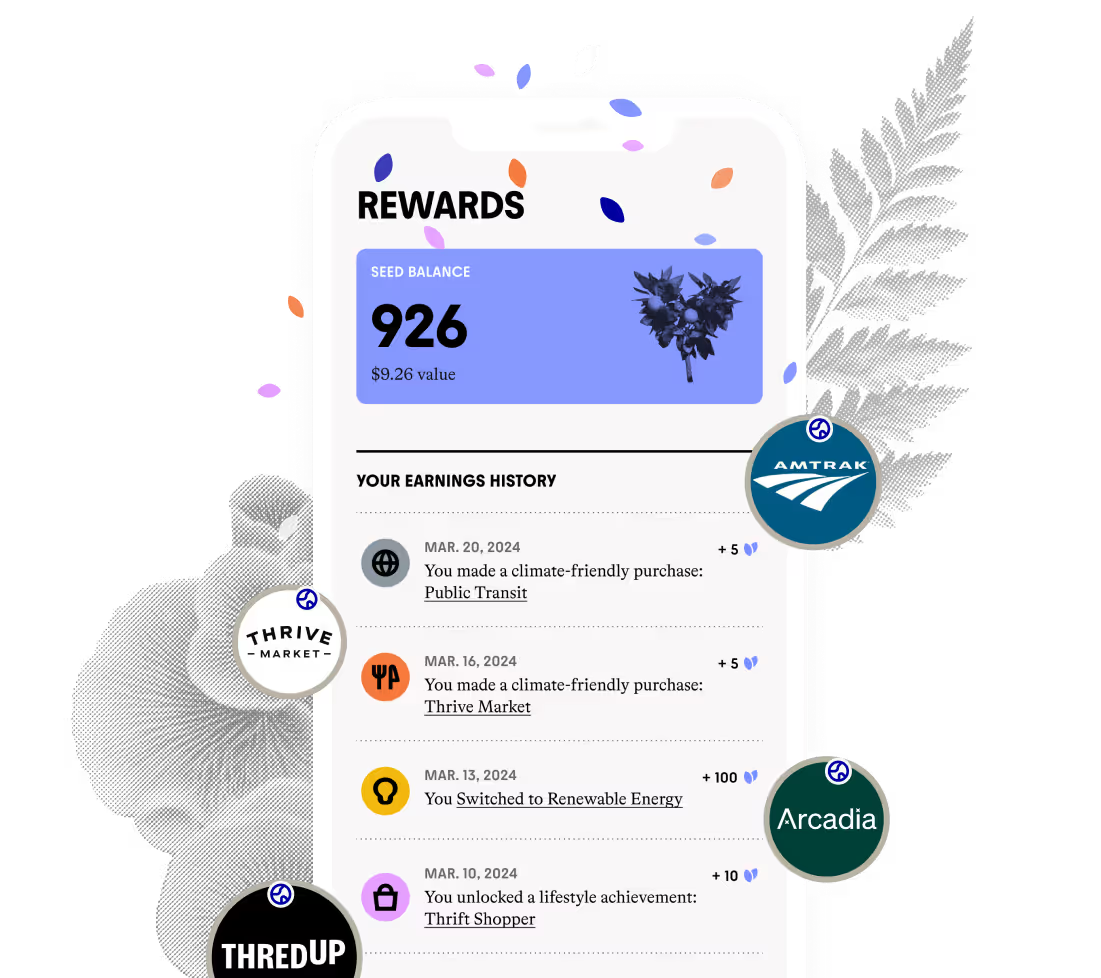Should We Have Kids in a Climate Crisis?
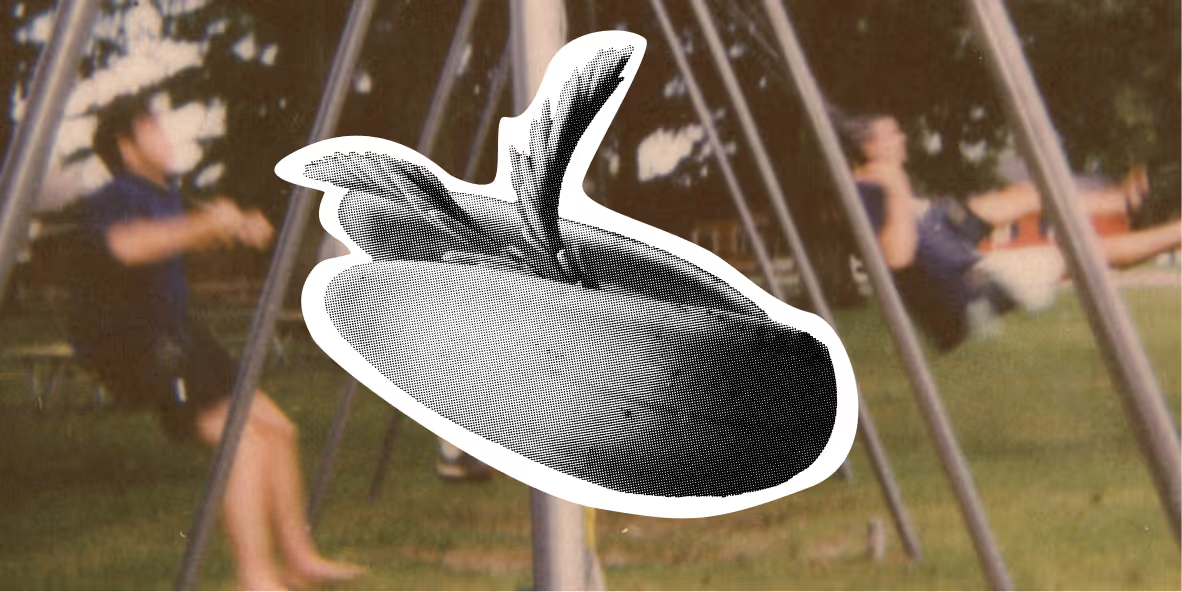
There are a lot of factors that go into the decision to have kids. Creeping up on that list is climate change. In the first episode of season 2, we’re diving into this tough topic with the help of community stories, data, and professional research from Dr. Jade Sasser.
On this episode, you’ll hear:
- How the climate crisis has impacted our community’s choice to have kids, or not have kids.
- How population growth affects the climate crisis.
- The emissions of babies.
- How to talk to your family about how the climate crisis is affecting your decision.
- Dr. Jade Sasser’s research perspective on how people have answered the kid question over time.
- The overpopulation debunked
- Resources to navigate the decision to have kids in a climate crisis.
Here are some resources Dr. Sasser recommends:
- Books: Elizabeth Bechard’s Parenting in a Changing Climate, Britt Wray’s Generation Dread: Finding Purpose in an Age of Climate Anxiety
- Websites: Climate Mental Health Network, Climate Psychology Alliance of North America Climate Cafe resources, Climate Anxiety and the Kid Question
Here are some of the people you'll hear from in this episode:
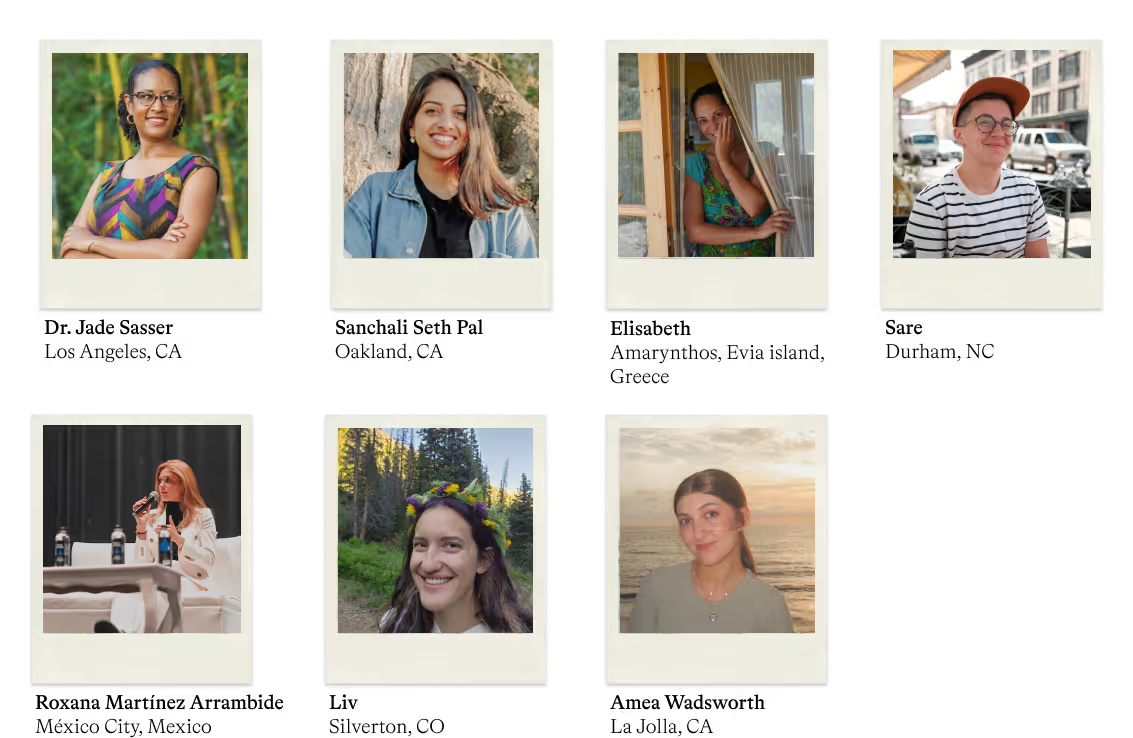
Citations and Further Reading
- Growing share of childless adults in U.S. don't expect to ever have children
- Fertility Rate - Our World in Data
- It Now Costs $300,000 to Raise a Child - WSJ
- Is having kids making climate change worse?
- Greenhouse Gas Equivalencies Calculator | US EPA
- We’re gobbling up the Earth’s resources at an unsustainable rate, UNEP,
- Worldbank, population
- Per capita CO₂ emissions - Our World in Data
- Population growth and climate change: Addressing the overlooked threat multiplier - ScienceDirect
Episode Credits
- Listener contributions: Amea Wadsworth, Elisabeth, Federica, Liv, Roxana Martínez Arrambide, Sare, Tiffany
- Featuring: Dr. Jade Sasser and Sanchali Seth Pal
- Editing and engineer: Evan Goodchild
- Hosting and production: Katelan Cunningham
{{cta-join2}}
Full Episode Transcript
Katelan (00:00):
Hi, welcome back to Second Nature, a podcast from Commons. Commons is an app that tens of thousands of people use to earn rewards for sustainable living. And on this show, we talk to people about how they're living sustainably in an unsustainable world. Having kids are not having kids is one of the most personal decisions that we humans can make. And one of the biggest,
We're no strangers to navigating personal and moral decisions on this show, like the decision to skip, meet, or by fast fashion, but having kids that ranks pretty highly on the list of societal, moral obligations. And yet, every year, more and more people are opting out of the parent path. A study in 2021 found that 44% of American non-parents from ages 18 to 49 don't plan to have kids. And that's up 7% from just a few years before. Now, there are many reasons why folks don't wanna have kids, but creeping up on that list is climate change. More and more people are asking themselves, should I have kids in a climate crisis? I'm your host, Kaitlyn Cunningham, and today on Second Nature, we're going to gently with all the nuance that we can muster, broach this very tricky question with the help of some statistics, plenty of personal stories, a chat with commons founders, St. Charlie, St. Paul, who is just coming off of maternity leave, and the professional learnings of Dr. Jade Sasser. She's a professor and author whose work explores how environmental problems intersect with reproductive bodies, health and rights. Here we go.
Katelan (01:46):
Since 1950, women have gone from having an average of five kids to 2.3. This decrease is due to more women having access to birth control, more women getting education and joining the workforce. And another factor is that it's getting more and more expensive to have kids. Some calculations estimate that raising a kid until they're 17 costs parents over $300,000. On top of all this, well, we share one planet. It can often feel like we're living in different worlds For people of color, people, disabled people, low income people, the world can feel altogether more threatening and more frightening for plenty of other reasons. So for some folks, climate change is one thing on a laundry list of reasons why they're hesitant to have kids, and for others, it's the core decision maker. In 2021, 5% of Americans who said they didn't want kids made that decision because of climate change.
We heard from climate concern listeners, a couple of key reasons why they're hesitant to have kids. First, some people feel a moral conflict about bringing a person into a world that's suffering extreme heat, catastrophic storms, fires, all due to climate change and the lack of big systemic climate action. And second, adding another human to the world is one of the most high emissions things that we can do if they grow up in the us. Your kid could have a lifetime carbon footprint of 300 to 600 metric tons of emissions, depending on how much they need to rely on fossil fuels in the future. Both of these are totally valid concerns,
But right now we're gonna speak to the second one. According to the IPCC, that is the intergovernmental Panel on climate change. Quite a mouthful. The primary drivers of climate altering emissions are population growth and economic growth. Since 1970, the global population has increased 115%. That's slightly more than double, but our resource extraction has tripled. So generally, each of us is buying more and driving demand for more stuff. That stuff requires energy and materials generating excess emissions and waste along the way. Of course, we know that people in wealthier countries generate a disproportionate amount of emissions. For example, here in the us each person racks up more than six times the amount of emissions of someone in Brazil. So a key question becomes, if we stop making new people, would the emission stop? Turns out no. Studies show that slowing population growth won't sufficiently limit global warming on its own to get to those pre-industrial levels of emissions that we need to get to. We'd also need to practice de consumption and seriously rev up sustainable technology efforts like renewable energy or carbon capture. So yeah, having kids is one of the most high emissions activities we can do. But not having kids is not a one-way ticket out of the climate crisis.
Of course, having kids is not just an emissions decision. It's so, so incredibly personal, and it's a decision that a lot of our listeners parents and non-parents alike have spent a lot of time mulling over
Tiffany (05:08):
The climate crisis in children. Oh boy. Well, I spent the majority of my life not wanting to be a parent. So that tiny little blip in time where I thought it was a good idea, we just kind of jumped on it, and we were fortunate enough to have two very healthy little guys. I think we're always gonna be nervous to have children no matter what's going on. So just go do whatever it is that makes your little heart happy and just raise them green, I guess. Just raise them green.
Federica (05:43):
So when I was little, I wanted to have four kids. I grew up in South America. Having kids is like what you do. I moved to the US when I was a teenager, and the more I realized first of all, that life here is different, but the US isn't really equipped to help mothers and parents raise their kids. I'm a very anxious person, and I'm afraid that having a kid in this situation might also make my anxiety much, much worse. But then also I'm afraid that I'll bring this kid into a world that's like not good for them, and then maybe they'll resent me for as long as I can remember. I've always wanted to be a mother. It's something that I feel like is a part of my being, and so I don't wanna give that up. And I haven't made the decision to be a mother lightly. I think the future is worth fighting for. I think our children are worth fighting for experiencing the joy of being around children, experiencing the wisdom that comes from intergenerational connection and friendships, and the community that comes from collectively raising the next generation together is crucial. And I think it's all going to be very strong pieces of fighting against climate change. We need community. We need joy. We need hope. And children help us with that.
Elisabeth (07:01):
I never wanted to have kids. One of the reasons is because of the situation with the climate. I have studied, uh, biodiversity conservation. So when I was in France and I was studying the science, I realized that all the problems that are happening are because of the human species. So I didn't want to bring one more kid on this earth. I prefer to dedicate my life in the project that I'm running here, living off the grid in a tiny house on wheels trying to regenerate the land. Yes, we have to stop having babies to save the planet, especially us, the people who live in the global north because all the kids eventually end up with a smartphone, a car, uh, all the kids want to travel. That's really not sustainable.
Sare (07:51):
Do you think we should stop having babies to save the planet? Uh, I think this is such a silly question. Um, I think silly is maybe not quite the right word, but it's not a realistic question saying, we're responsible for this and we're giving up. I don't think that that is a healthy perspective. Like regardless of whether you want kids personally to feel like human extinction is the only answer, we all just need to be more involved, more responsible, more thoughtful, advocating for more change. As a person, the life I'm living now in 2024 is completely incomprehensible to me as a kid. And there has to be hope that the world can change in positive directions too. If you care about the climate. I've found being a parent has brought me into a place where I have to be hopeful and where I want to be intentional and thoughtful about all of my decisions, not because of the impact that that has on my kids' future, which obviously I think it does. But just because it's forcing me to move beyond a place motivated by fear. And I think anyone who cares about the future of the earth has to move past that. Hope is how you create new things and fear's how you give up.
Roxana (09:14):
I personally have never been fond of the idea of having children, both for environmental and personal reasons, but still, I am not making up my mind before I am 30 years old if I could travel to the future and see that by 2034 climate policies are in place in almost every country, Mexico has achieved net zero emissions. Polluting cars are gone and replaced by electric vehicles, food security is insured, and countries are powered by clean renewable energy, then I'd definitely be inclined to have children. The decision to have children should be made with careful consideration of these factors and a commitment supporting efforts that drive us towards more sustainable and equitable future.
Liv (09:52):
I'm currently leaning yes, but ask me after some natural disaster and maybe that opinion will have changed. I would tell someone who wants kids but is nervous about it because of the climate crisis. So me, <laugh>, I guess I would tell myself and others in my position to do it. I tell that person to be brave, and I would tell that person to teach their child to be brave, to demonstrate courage, to show somebody what it looks like to care and to fight for themselves and to fight for their child, and to fight for their family, and to fight for everybody.
Katelan (10:28):
This is certainly not the first time in human history when people have belabored the question of whether to bring kids into a troubled world. Here in the US you can look back to the sixties and the threat of nuclear war or the economic strife of the great depression or centuries of people being enslaved. Dr. Jade Sasser is a professor and writer who's focused her career on one of the biggest threats of our time, the climate crisis, and how it affects reproductive bodies, health and rights. She's the author of two books that explore this intersection on infertile ground population control and women's rights in the era of climate change, and more recently climate anxiety and the kid question deciding whether to have children in an uncertain future.
Katelan (11:16):
Hi, Jade.
Dr. Sasser (11:17):
Hi. How are you?
Katelan (11:18):
So good. Thank you for coming on the show.
Dr. Sasser (11:21):
Thanks for having me.
Katelan (11:22):
Okay, so I wanna kick things off with some phrases that you brought up in your latest book, these three stances that women and parents have taken, sort of like in response to the kid question, reproductive resistance, reproductive resilience, and reproductive refusal. And I found these distinctions super helpful. So I wondered if you could give us a quick rundown of the difference between these.
Dr. Sasser (11:44):
Yeah. So I wrote that section of the book identifying and delineating these three terms because I felt like when I would talk to people about that research and talk about how frequently, uh, young people voice the notion that they can't have children under these circumstances, often people would assume that that meant that they were reproductive refusers, that they were intentionally happily choosing not to have children now and in the future. That's what a reproductive refuser is. But that's actually not the case at all. People who are rethinking their parenting plans in the context of climate change are not doing so autonomously or or of their own free will. They're doing so in the face of these really overwhelming, often oppressive conditions that have been handed to them through our political economic system through reliance on oil and gas development, um, and through all the consequences of that.
And so those who voice the reality that it is difficult or impossible to imagine bringing kids into the world as a moral and ethical choice in the face of a climate disaster, a known disaster that is bad and is going to get worse, I refer to that as reproductive resistance. You're resisting the conditions that have been handed to you in an unjust, unfair, unequal society that's very different from making an autonomous choice to refuse. And then the third term that you brought up is called reproductive resilience. And that's what I use to refer to people who knowingly, willingly accept the challenge of a society in which raising children will not be easy. It will be extremely challenging. It, it produces intense barriers for parents who worry constantly about their children growing up in safe and sustainable conditions. But being reproductively resilient is what happens when you have children anyway. And then you organize your parenting around educating your child in an age appropriate ways about the things that might be harmful or impactful to them while also working to resist those things. Yeah,
Katelan (13:52):
I love that within those three phrases, you sort of encapsulate so much nuance because I think it, there's sort of this idea that if you're a parent, you care about the climate to a point and then you stop caring because you have a kid and that, you know what I mean? Or, or even the fact that like you said, there are people who want to have children but have chosen not to. And so I really appreciate the nuance that those terms sort of allow for within that.
Dr. Sasser (14:15):
I also wanna say, so the book is called Climate Anxiety and the Kid Question, having a Kid doesn't answer that question,
Katelan (14:23):
Right?
Dr. Sasser (14:23):
And what I mean by that is I have spoken to so many people who are climate anxious, who then have children and who continue to be climate anxious. And really what this moment is calling for is for people to manage that climate anxiety in an ongoing way with the tools and resources that are available for them to do so. And luckily, because of conversations like this one that we're having right now, there are more and more tools and resources for parents and for parent hopefuls people who would like to raise children
Katelan (14:54):
In one way, it's maybe unsettling to think that your anxieties don't go away, but it's also perhaps nice to know that it's not all riding on this one decision.
Dr. Sasser (15:05):
Not at all. And I do have to say that particularly for parents who I spoke to who have been parents longer, whose children are older, one thing that they argued is that becoming a parent while navigating climate anxiety can really ratchet up your level of engagement and fighting climate change.
Katelan (15:26):
I feel like so many solutions to the climate crisis are around kind of like going back to community that we've lost. And I think that's a great example. Like we never used to raise kids in isolation. And now that's sort of the, the reality for a lot of people. So the idea that going back to kind of how we always did it <laugh>, is once again perhaps the solution for how to get out of it. I wanted to take it back to an op-ed that you wrote for the LA Times. And in it you wrote the link between population and climate change is broken. And I was wondering if you could share more about the overpopulation narrative and if you've seen it shift over the years at all.
Dr. Sasser (16:05):
For a very long period of time, close to a century, there were these ideas that there are too many people on the planet. The population growth is rising rapidly, and that in response, important natural resources like food and other resources were being depleted and that human life was becoming miserable, untenable, and would be in crisis in the future. This is a very long sort of prevailing story. The science has demonstrated that to be false over the decades and in different regions around the world. What tends to be more so pressing issue is the distribution of food and other kinds of natural resources and the hoarding of resources by the ridge, the overconsumption of the ridge and bad distribution practices by governments. But when it comes to climate change, in particular, as population has actually been declining in the United States, uh, over the last 80 years, so people having fewer children, fertility rates going down, greenhouse gas emissions have been going up at exactly the same time period.
Dr. Sasser (17:15):
So if human numbers drive greenhouse gas emissions and climate change, you would expect the two to have gone up like that together. And in fact, they have an inverse relationship. And I think that that very clearly demonstrates the fact that it's in fact not human numbers that drive the problem when it comes to greenhouse gas emissions and climate change. Instead, it is the unsustainable production of fossil fuels and the unsustainable consumption of resources. And that is largely driven by the rich, by over consumers, by governments, and in particular by militaries. A lot of actors who can operate behind the scenes. While this running narrative of population continues, and we know that these narratives about population are quite dangerous, they're harmful for people of color, they're harmful for the poor, they're used to justify population control interventions, which have been very coercive for many years. So I really want to debunk that relationship when it comes to climate change.
Katelan (18:20):
A lot of people have trouble talking to their family about why they don't wanna have children. And I think even though the climate crisis has been sort of impending for a long period of time, it can feel like a non reason maybe to parents. And so I guess I kind of wondered like did you find that to be true in your research? And how have people navigated that conversation with their families?
Dr. Sasser (18:39):
Believe it or not, it's not actually new for people in their reproductive years to be hesitant and concerned about bringing children into the world. There have always been reasons to be worried or concerned whether it is being financially precarious, whether it's having a physical or mental health condition, whether it is having a, a shaky relationship with a partner or not having a partner at all. And then for particular groups, you know, folks who are or trans navigating, living in a homophobic and transphobic society and world, that's not a small concern for black and brown folks being concerned about the impacts of structural racism and interpersonal everyday racism, not a small concern. And then not to mention things going on in the world, there have been wars, there have been epidemics. Climate change as a reason to be concerned about parenting is of the moment.
Dr. Sasser (19:38):
However, being concerned about whether to have kids or not because of looming concerns about the state of the world, there is nothing new about that. And I think it's also important for people in older generations to understand that their desire for grandchildren, of course it's important, but it doesn't override the concerns of those who would have to bear and raise those children. And so I think it's important to be compassionate, to take other people's concerns very seriously, even if you're not experiencing them yourself. And one, I think really important thing for people to be aware of is that dismissing, denying and belittling people's concerns can actually make them feel more isolated and can make their distress feel worse.
Katelan (20:24):
Yeah, definitely. Okay, I have one more question, and it's a tough question, but I'm sure you've heard it before. Ren in Hong Kong asked, was I wrong to have kids? And I was wondering how you typically answer a question like this?
Dr. Sasser (20:39):
You know, first and foremost, I would never ever say that it is wrong to have children. Children can bring so much happiness and so much joy into a person's life, into a family's life. Kids are important for a lot of reasons. They are ways that we transmit our culture. They are ways that we experience the joy of creating and leaving a legacy, which again, for a lot of people is really important to personal happiness and family happiness. What I will say is that we have concerns based on how we're living on the planet today that are very, very deeply distressing for so many people. And if you are experiencing that distress, number one, you are absolutely not alone. There are many people feeling distressed in very similar ways, and for a lot of people, they're just not talking about it, which I think tends to increase the sense of isolation, guilt for a lot of people, women in particular express a lot of guilt about having children in the midst of climate crisis.
Dr. Sasser (21:45):
I would urge people that questioner and others in particular to push back on the narrative that makes this an individual decision that you then have to take responsibility and blame for. Unless Ren is a leader of a military, a government, or a corporation, <laugh>, right? They very likely have not played an outsized role in exacerbating climate change and making it worse for the planet. More than likely they are dealing with the impact like all of us are. But you do have to navigate it because you're in the world. And one good way of navigating it is to get some of those tools and resources among other parents, uh, these tools for children, et cetera. Strengthening networks of community, et cetera. Whatever helps you sort of feel more emotionally resilient is probably gonna be very useful for you. Be ready and willing to have the conversation with others, especially other people in their reproductive years. The conversation is often more challenging when it's intergenerational when you're talking with people who don't have these looming issues or looming, pressing decisions right in front of them. Mm-hmm, <affirmative>. But when you're talking to others who do, I think you'll find a lot more understanding than you might imagine.
Katelan (23:06):
Well, thank you so much for helping us navigate these tough conversations and really tough decisions. Really appreciate you taking the time.
Dr. Sasser (23:13):
Thank you.
Katelan (23:20):
If you wanna check out some of Dr. Sasser's favorite resources, she has generously sent them to us and we have dropped them right into the show notes, so you can check them out there in her book, climate Anxiety In The Kid Question Sassa writes about a conversation that she had with Britt Ray Britt is a researcher and an author of the book Generation Dread. You may have heard of it. After much deliberation, Ray decided to have a kid, and as Sasser puts it, it was a way for Ray to reject fear in favor of Joy. Ray said that it's about producing the future that I want to be living in. Commons founder Sanchali Seth Palhas made a career out of producing the future that she wants to live in, and she recently welcomed a new person into that future. Welcome back, Sanchali.
Sanchali (24:08):
Thanks Katelan. It's great to be back.
Katelan (24:11):
So since you were last with us, you are now a new mom.
Sanchali (24:15):
Yes, indeed. Uh, my daughter is two months old now and it's been an exhausting, uh, but really, really beautiful time and I've been trying to savor every minute.
Katelan (24:25):
Yeah, it's so exciting, um, getting to know you the past year and a half. I know that any decision that has a climate impact, which is basically any decision <laugh> for you is is one that you don't take lightly. So I can only imagine all the thought that went into you preparing to have a kid and like making that decision.
Sanchali (24:43):
Thank you. I really appreciate that. I, I did spend a lot of time thinking about this decision. Um, and I will say like, I started from a place where my underlying intuition was, I think I wanna have a kid. I think I've known that about myself for a while, but being who I am, I wanted to be able to think about it and make sure that the decision I was making aligned with my values as I do with any major decision. And so the concerns you shared earlier in the episode really resonated with me. I think those were the same things on my mind. Mm-Hmm. <affirmative> that especially to start with. I started feeling this really deep anxiety about the, what the world will be like when my daughter is older. Like she is being born in 2024, in 2050, like it's gonna be the middle of her twenties and she's gonna be in the world that we're all talking about in the future.
Sanchali (25:28):
Mm-Hmm. <affirmative>, I was concerned about if the world will be torn apart by extreme weather, events, migration, conflict disease, all the things that are happening now, but worse because of climate catastrophe. And for me, this is fundamentally just where hope comes in. It's not super rational, but what gives me hope is that the current spike in emissions is human caused. And it's only been around for a short period of time in the history of the world and the history of humankind. Over half of human caused greenhouse gas emissions have been released since I was born in 1990. Wow. This is a really short period of time. Like this isn't normal or natural or inevitable. It just happened because of the way we decided to develop our lives in the last few decades. So I really believe that we can reverse these effects equally quickly as humans if we put our minds to it. Um, after all, we cause them <laugh>. Basically what I was thinking is I need to do everything I can and believe in the power of my fellow humans and our collaboration and innovation to reduce greenhouse gas emissions and adapt to the changes of warming planet fundamentally. Like I believe we can restore the earth to a place where all life can thrive. And bringing a new child into this world is a belief in that future. Mm-Hmm.
Katelan (26:39):
<affirmative> for sure. I always try to veer toward optimism. What about emissions? What about when it comes to emissions? Should we be concerned about the emissions of this new person that we're bringing into the earth?
Sanchali (26:49):
People being worried about the emissions of having a child strikes me as something like really deeply about guilt and shame. Hmm. And I feel this with all sorts of choices, but I think this is one of the things people struggle with the most, with choices about how to live their lives is because like, should I feel guilty for doing something I wanna do? Mm-Hmm. <affirmative>. And I really reject that. I don't think we should feel ashamed about living lives that are beautiful and fulfilling. That's the whole point of living on planet earth. If living on planet earth sucks, then we don't need to continue living here. <laugh>. And I don't think we should feel ashamed about bringing another life onto the planet. An additional human life doesn't by definition have to be destructive. Reproduction in life is natural.
Katelan (27:32):
Earlier Dr. Sasser mentioned that fertility rates have gone down while greenhouse gases have gone up. And so I wanted to dig into this a little bit more.
Sanchali (27:40):
This is such a good point. It's, it's true. Our per capita emissions have increased as our incomes and the carbon intensity of our lifestyles have risen. So as our lifestyles have become those that cause more greenhouse gas emissions, like we're driving more in cars that combust fossil fuels, we're buying lots more stuff. Um, as that started to happen, our emissions have increased. According to Oxford's, our world in data, global greenhouse gas emissions per person in the 1850 were just three and a half tons, 3.3 tons. And since then, they've more than doubled to about 6.8 tons on average. So that tells us if we reduced our average greenhouse gas emissions in half, we'd actually be back in a world with much safer levels of emissions.
Katelan (28:25):
Do you and your husband already have plans for how you're gonna raise your daughter more sustainably or at least like for the first year or two?
Sanchali (28:33):
Oh boy. Do we, well, I have a lot of plans. We'll see if my husband's on board. I'm working on it. No, there's like so much to think about and we'll have to go deeper on this in a future episode, but yes. Um, sort of like the high level TLDR is that I took a look at what the biggest drivers of emissions are in a child's first year of life. And the truth is, the absolute emissions of a baby are pretty low. They don't eat that much. They don't use up a ton of energy on their own. They don't do that much. So there's really only a few things that matter and most of them are within your control. Mm-Hmm. <affirmative>. So in order of importance, there's what you buy for them, that's like stuff, clothes, furniture, even a house. If you change your house, what they eat and how you dispose of their waste, mostly poop. But other things that they create trash for <laugh>. Um, and everyone worries about diapers. I feel like this gets the most airtime. <laugh>, yeah, they do matter, but not as much as the first two items. What you buy is by far the most consequential. And then what you eat also matters. And then how you dispose of their waste matters, but it's less important.
Katelan (29:35):
Okay. What's been your approach to diapers? I have to ask
Sanchali (29:39):
<laugh>. Um, so far we're trying compostable diapers. Uh, we'll see how that goes. And it's not available to everyone, but they are available to people like us in the bay. So I'll keep you posted.
Katelan (29:50):
Great.
Sanchali (29:51):
And most of the things I've been working on and spending my effort on are buying as little as I can, getting most of what we need secondhand. I personally am trying to breastfeed. Not everyone can, but I'm trying to. So what I eat matters and I'm trying to keep up my low meat eating habits. So yeah, that's what else I'm up to.
Katelan (30:08):
Love it. I wanted to end on asking you the same question I've asked other people in the episode, which is, what would you tell someone who's climate anxiety is making it hard for them to decide whether or not they should have kids?
Sanchali (30:22):
This is such a hard decision and it's so personal. And I would definitely tell someone like, your choice is your choice. Don't let anyone else affect it. Having a child is a huge decision. Having just gone through it for the birth parent, it's really difficult and really consequential. And for anyone who's supporting that person, it's also really hard. Um, so fundamentally, it's your choice. Don't let anyone make you feel bad about whether you decide to have kids or not have kids. Also, all of your concerns and anxieties are valid. It is concerning the world that we're living in. And if that's bothering you, Mm-Hmm. <affirmative>. I think that that's something to address for yourself too. Like how are we gonna bring future generations onto this Earth is a really important question. If you, what you're worried about is the emissions of your child, I would say don't worry about that too much <laugh>. There's really things you can do to make it less. And again, like I said, my way of thinking about it is like, we want the world to be a beautiful place to live for future generations and your child included if you choose to have them. So don't feel bad about bringing a kid into this world. If that's what you want. Make the decision based on how you want your life to be.
Katelan (31:27):
I love that advice and I can't wait to meet your little baby soon, hopefully.
Sanchali (31:32):
Yes, me too.
Katelan (31:33):
See you next time.
Sanchali (31:34):
See you soon. Bye.
Katelan (31:42):
Well, you probably saw this coming, but the question of whether or not we should have kids in a climate crisis, whether you should have kids in a climate crisis, it's not one that I can answer. It's not a question that Charli or Dr. Sasser can answer either. It's a question that can't be answered solely by stats or studies or personal stories, or even pressure from friends and family. If you've already answered the kid question for yourself, maybe this episode gave you some insight into how other folks are thinking about it. If you haven't, I hope this episode gave you some ways for you and your family to think and talk about that decision. It's not an easy conversation to have, and I, uh, wanna thank you for making it through this episode. Honestly, we really started season two with a doozy, so thanks a million times to our listeners who shared their perspectives and vulnerable thoughts with us today. You heard from
Katelan (32:48):
I also wanna thank our guests, Dr. Jade Sasser and commons founders, St. Charlie, St. Paul. You can hear more from Dr. Sasser in her latest book, climate Anxiety and The Kid Question. She also has a podcast by the same name. If you wanna discuss more big climate questions, you should definitely join our Instagram community. You can follow us at Second Nature Earth, and you can also join us in the Commons app where you can participate in monthly challenges and weekly polls with a community of folks, including myself, who are building their own kinds of sustainable lives. Don't forget to head the show notes for citations and further reading. Our editor and engineer on this episode was Evan Goodchild with Fact Checking by Common's Carbon Strategy Manager, Sophie Eski. It was written and produced by me, Caitlin Cunningham. I hope you'll join us next week. We'll be answering the burning question on many of our listeners' minds. How do we get other people in our lives to take action for the climate crisis? We'll see you then.
Tiffany (33:46):
That's just me rambling. I should probably go to bed, but eh, you know, all for the sake of the earth.



